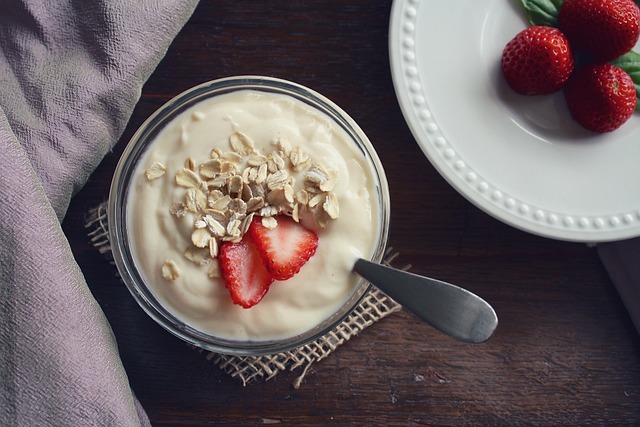Gut Health 101: Unleashing the Power of Probiotics for a Strong Digestive System
Our digestive system plays a crucial role in maintaining overall health and well-being. It is responsible for breaking down food, absorbing nutrients, and eliminating waste. An unhealthy gut can lead to various digestive disorders, nutrient deficiencies, and even impact our immune system.
Understanding the Gut Microbiome
The gut is home to millions of microorganisms, including bacteria, fungi, and viruses, collectively known as the gut microbiome. The delicate balance of these microorganisms is essential for optimal gut health.
Probiotics are live microorganisms that provide numerous health benefits when consumed in adequate amounts. They are often referred to as “good bacteria” and can help restore and maintain a healthy gut microbiome.
The Benefits of Probiotics
Probiotics offer a wide range of benefits, specifically for our digestive system. Here are a few ways they can contribute to a strong and healthy gut:
1. Improved Digestion
Probiotics assist in breaking down food and enhancing nutrient absorption. They also produce enzymes that aid in the digestion of carbohydrates, proteins, and fats, promoting smoother digestion.
2. Enhanced Nutrient Absorption
A healthy gut microbiome allows for better absorption of essential nutrients, such as vitamins, minerals, and fatty acids. By improving nutrient absorption, probiotics ensure that our body receives the necessary building blocks for optimal functioning.
3. Boosted Immune System
70% of our immune system is located in the gut. Probiotics play a crucial role in supporting immune function by supporting the growth of beneficial gut bacteria and inhibiting the growth of harmful pathogens. A strong immune system helps defend against infections and diseases.
4. Reduced Digestive Disorders
Probiotics have been shown to alleviate various digestive disorders, such as irritable bowel syndrome (IBS), bloating, constipation, and diarrhea. They restore the balance of gut bacteria, reducing inflammation and promoting regular bowel movements.
5. Improved Mental Health
Recent studies have linked the gut microbiome with mental health. Probiotics can potentially impact brain function and mood by producing neurotransmitters like serotonin, often referred to as the “happy hormone.” By promoting a healthy gut, probiotics may contribute to overall mental well-being.
Sources of Probiotics
Probiotics are naturally present in certain foods and can also be taken as dietary supplements. Some common sources of probiotics include:
- Yogurt
- Kefir
- Sauerkraut
- Kombucha
- Kimchi
- Miso
- Tempeh
When choosing probiotic-rich foods, it is essential to check labels for live and active cultures. Additionally, supplements can provide higher doses of specific probiotic strains.
Integrating Probiotics into Your Diet
If you’re looking to improve your gut health by incorporating probiotics, here are a few tips:
1. Try Different Probiotic Foods
Experiment with different probiotic-rich foods to find the ones that suit your taste preferences. Incorporate yogurt or kefir into your breakfast routine, enjoy a serving of sauerkraut with your main meals, or try a glass of kombucha as an afternoon pick-me-up.
2. Consider Probiotic Supplements
If you find it challenging to consume enough probiotics through food alone, consider adding a probiotic supplement to your daily routine. Consult with your healthcare provider to find a suitable option based on your specific needs.
3. Maintain a Balanced Diet
Remember that probiotics work best when combined with a healthy diet. Focus on consuming a variety of nutrient-dense foods, including fruits, vegetables, whole grains, and lean proteins.
4. Minimize Stress
Chronic stress can negatively impact your gut health. Engage in stress-reducing activities like yoga, meditation,







